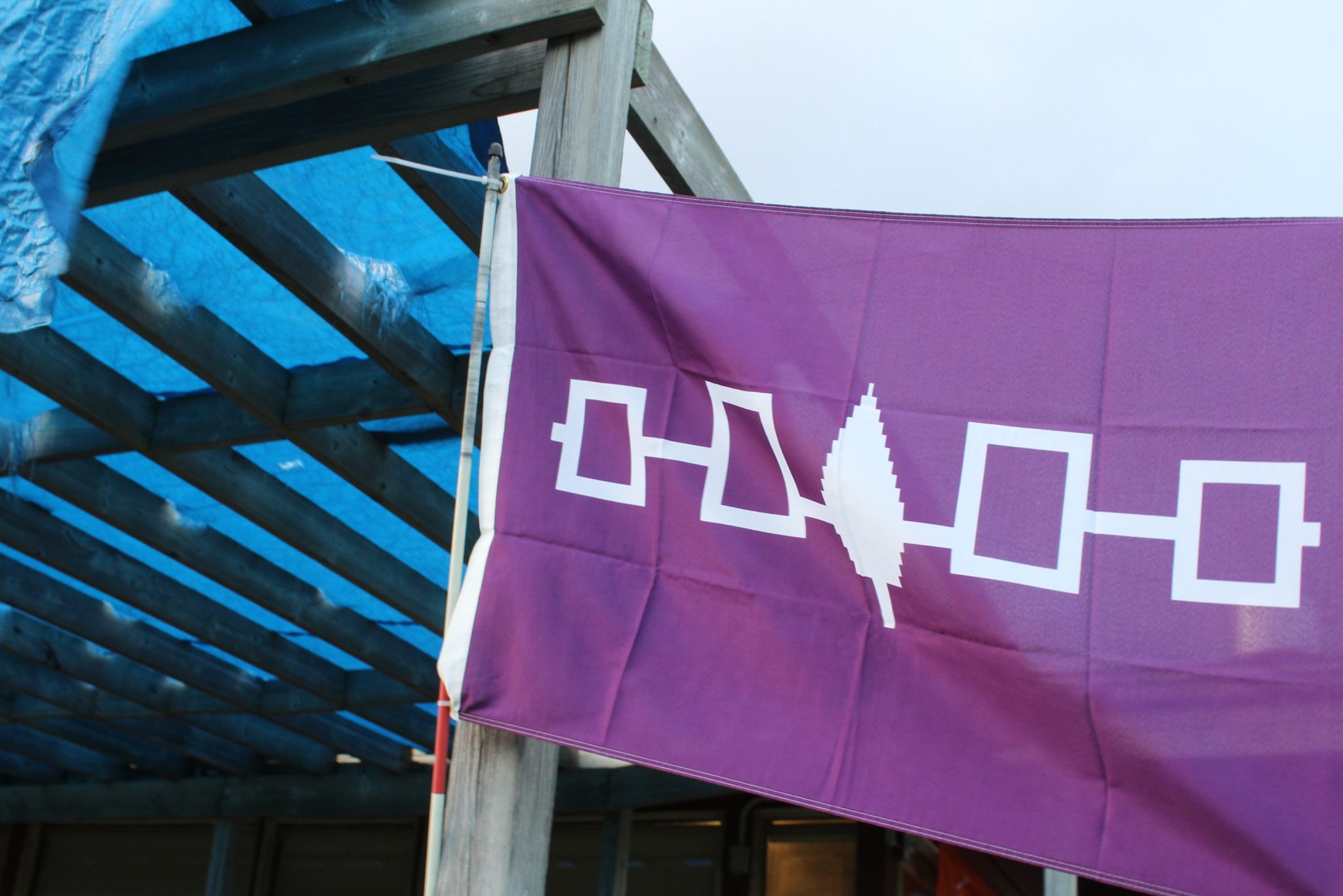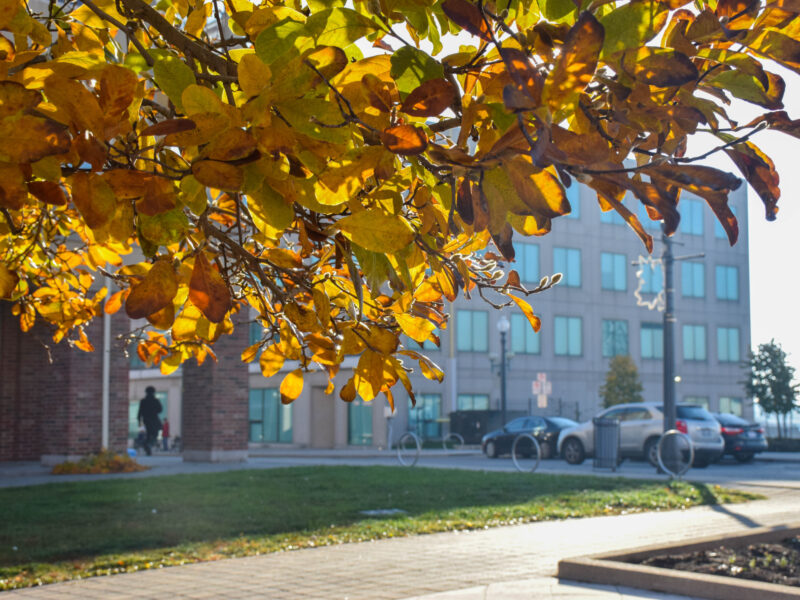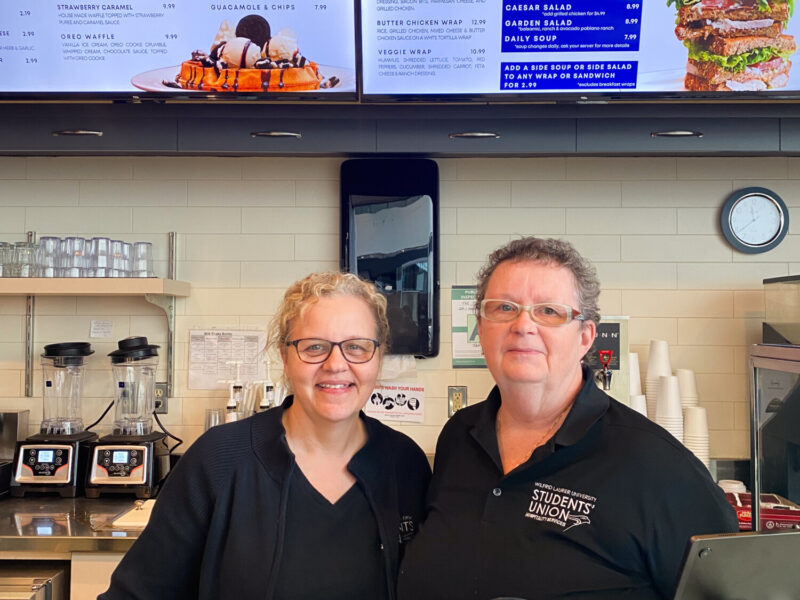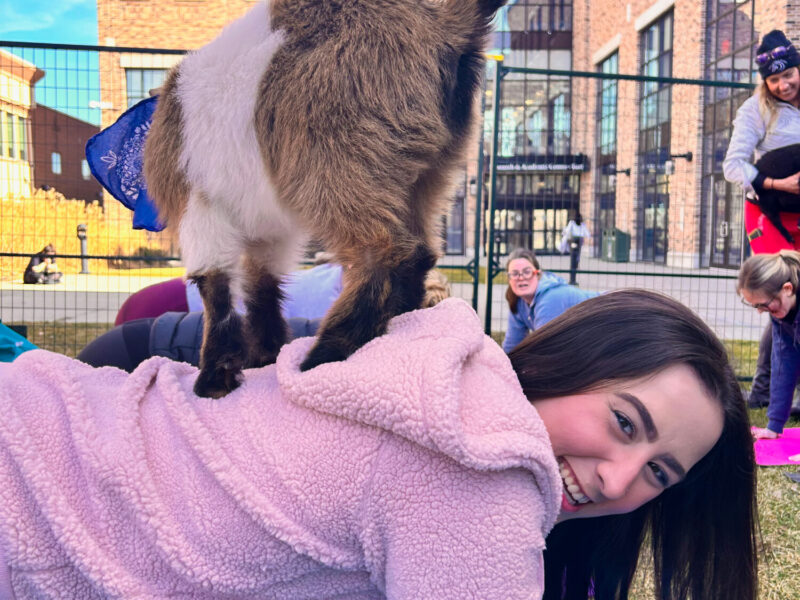PHOTO CONTRIBUTED BY SARA SHEIKH / SPUTNIK PHOTOGRAPHY
Wilfrid Laurier University hosted Beyond Treaty Recognition Week: Enacting Treaty Relationships Between Canadian Citizens and Indigenous Peoples with events from March 7 to 10.
The events are meant to teach students about fulfilling Treaty roles and responsibilities as Canadian citizens and assert Indigenous sovereignty when it comes to Aboriginal Treaty Rights in Canadian Constitutional Law.
Beverly Jacobs started the week with “Legal Foundations of Haudenosaunee Assertions of Sovereignty: How Ancestral Laws of the Land Ensure Abundance for All and Define Healthy Relationships Between Us” on March 7 at 1 p.m.
Christine Neill, an associate professor in economics at Laurier, retweeted a @WLUIndigenous Twitter post about Jacobs’ event where she talked about settler privilege. Neill said there should be a greater effort to learn about the damage European settlers caused on Indigenous lands.
“We should be doing more,” said Neill.
Phil Monture presented “Justice That Will Last” on March 8 at 2 p.m. and Rick Hill hosted “Sovereignty is the Act Thereof: Haudenosaunee Political Consistency and the Canadian Response” on March 9 at 2 p.m. Hayden King Gchi’mnissing and Eva Jewell Deshkan Ziibing closed off the week with “‘All That We Are Responsible For’: Anishinaabe Principles of Family/Treaty Making” on March 10 at 1 p.m. All events took place as Zoom Webinars and were recorded.
For most events, the speaker would introduce their topic of discussion and later host a questions and answer period for viewers.
The Office of Indigenous Initiatives organized Beyond Treaty Recognition Week with the Office of the senior executive officer on the Brantford campus, the Office of the Associate Vice-President, Equity, Diversity and Inclusion, the Office of Human Rights and Conflict Management, the Centre for Student Equity, Diversity and Inclusion and the Social Justice and Community Engagement program.
Monture revisited the ongoing 1995 Six Nations court case in his event and talked about holding Ontario accountable for violating the Haldimand Treaty Act and mismanaging Six Nations’ Trust monies. Hill explained the Haudenosaunee political theory of sovereignty and talked about how Canadians can be better allies during his event.
“I think it’s important to learn about how settler colonialism impacts Six Nations and other communities local to where I live and work,” said Heena Mistry, the Zoom Webinar technical host for all the events, in an email. “As a non-Indigenous person, I think it’s important that we understand what our responsibilities are in our specific localities.”
In the last event of the week, King and Jewell discussed Anishinaabe principles of relationality, family and political diplomacy. They compared Anishinaabe and European perspectives on treaty agreements and challenged Canadians to think about the treaty obligations of today.
“These are events that we need to keep on the calendar,” said Neill in an email. “People’s attitudes rarely change with one big bang type event. It’s the constant drip of small things that eventually changes us as individuals and as societies.”
For more details on the events that took place last week, visit this link: https://www.wlu.ca/about/discover-laurier/equity-diversity-and-inclusion/news/2022/beyond-treaty-recognition-week.html.
For updates on more Indigenous events on campus, check out the @WLUIndigenous Twitter account at this link: https://twitter.com/wluindigenous.




